Olayinka Oyegbile’s ‘The Dirty Leap’: Dramatising disillusionment and dystopia
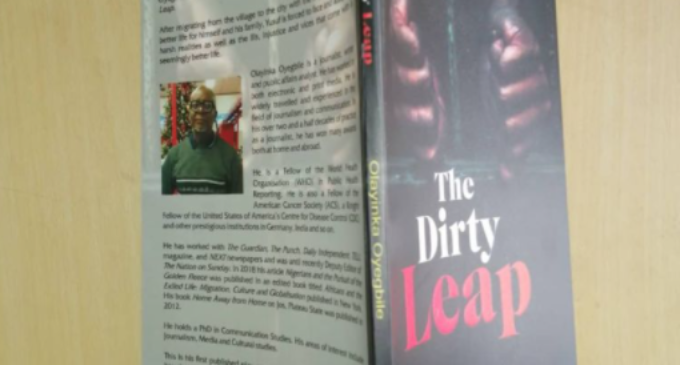
No literary work is divorced from the society in which it is created. Whether covertly or overtly, literature is usually influenced by the society in which it is created. As Ngugi wa Thiong’o rightly noted, literature does not exist in a vacuum. In creating literary works, writers draw from their society; therefore, literature mirrors life in society. It reveals both the positive and the negative aspects of the society and presents it to the audience. Thus, writers in the Third World are not only fully aware of the appalling state of their society and its inhabitants, but they also attempt to reflect these unsavoury realities to the reader.
The Third World writer does not engage in arts for art’s sake. In the hands of the Third World writer, art becomes a means to lament, protest, convey, speak the minds of the people, and let the world know the existing state of affairs in the society and the dynamics of navigating through it by the commoner. Therefore, most of these writers use their works as a crusade against extortion and maltreatment of the underprivileged people in society.
One of these writers is Olayinka Oyegbile, a Nigerian writer who has written several news articles on Nigeria’s political, economic, and social conditions in Nigeria. However, this review will primarily focus on his latest play titled The Dirty Leap (published by Kraftsgriots in 2021), which explores and exposes the disillusionment at rural and national levels, with a view to elucidating on how as a socially committed dramatist, he engages with the circumstances that obtain in Nigeria, particularly the bane of development and modernization.
In The Dirty Leap, Oyegbile reflects and refracts on what has become of his nation’s political leaders and their promises of development and prosperity. What is fascinating about his presentation is the approach from the rural or local level. In the play, Oyegbile sets out on a journey of revelation in seven dramatic folds through the character of Yusuf’s disillusionment in a post-independent nation. In relation to this, the playwright puts this issue in a cyclical perspective through the character of Hadiza, who unknowingly gets stuck in a drug trafficking ring in the city. Also, through the character of Chief Arowolo, the enablers of this predicament unlock and highlight the bizarre attitude of corrupt African leaders and how they hinder significant development.
Overall, hopelessness and disappointment pervade the play as the playwright adopts the modernist approach to express the growing disenchantment with the industrialized society, as it descends on modes of realism. In this play, Oyegbile’s embrace of the tenets of modernism was geared towards questioning the principles of realism and nationalism, as well as questioning the ideals of decolonization through the projection of a dystopian postcolonial society which ultimately creates and triggers the sensibilities of readers on a new definition of social objectives for political leaders and citizens.
Oyegbile’s subversion and metaphorization of the trajectory of movement in his play is noteworthy. He traverses the dynamics of post-migration experiences as a disillusioned one in the quest for a better life after being forced out of their own space or environment. This is evidenced by Yusuf’s movement from his rural community to the city due to persistent economic hardship and political incompetence by government authorities, which is also shown through the character of Chief Arowolo, the local government chairman who denies Yusuf’s family of their rightful compensation. The Dirty Leap opens the paradox of the city, the persistent contrariety between an individual’s intended success and the reality that ensues. Through the actions and inactions of the main character, the play exposes the consequences of this dilemma and how a “leap” to a big city from a rural community does not necessarily translate to success and development, which can be “dirty” sometimes, as suggested in the title.
Furthermore, the intense focus and close examination of pressing socio-political ills in the society by the playwright in the play is fascinating and worthy of mention. In other words, Oyegbile follows the school of thought that asserts that the writer is obligated to show his commitment by reflecting the socio-political vices that obtain in the society in which he lives and writes and, most importantly, adopts local or rural aesthetics in the literary work. This element is demonstrated in The Dirty Leap as the dramatist presents characters from the rural community, from the protagonist to the villain. Essentially, the creation of the problem in the play is not ascribed to a foreigner who is non-relatable to audiences and what is obtainable in the writer’s immediate environment.
Also, Oyegbile, in his play, creates a node of using the particular to talk about the universal by using the binaries of rural/modernization; citizen/government official; education/employment; and hope/greed, which aptly represents the Nigerian environment. As a committed writer and employer of modernist tenets, Oyegbile could be said to have offered a threshold for experimentation with narratorial perspective, the representation of interiority, and the relation between such interiorized consciousnesses and their surrounding social milieus. The Dirty Leap is a modernist drama that exhibits quite a number of modernist features. The play conveys an overwhelming sense of pessimism, hopelessness, and despair through the use of vulgar language, symbols, and scatological imagery. The author’s disillusionment and anger at the state of the society are also reflected and well explored in the play.
This drama text examines representations of post-independence disillusionment as it explores a range of nodes whose features are failures of political leaders and the plight of the masses in Nigeria. It depicts how the average person is oppressed in the society by the supposed upholders of the law. This is shown through the character of Chief Arowolo, a former local government chairman at a rural community, who moves into the city to run an organized drug trafficking ring. This is in comparison with Yusuf, a commoner who moves into the city to make a decent livelihood but gets entangled in the disillusioned world of Chief Arowolo. Through this, Oyegbile presents Nigeria’s dysfunctional socio-political clime. The exploration of this part of the play draws readers’ attention to the apparent disillusionment that pervades the political and social space, coupled with the obsession with power and corruption that is the bane of development in the country.
The dystopia feasts on in the play as it aptly mimics the current situations in the country’s public space, particularly the judiciary arm of the government, which by and large is an extension of what happens in every arm of government in the country. Even though literature is fiction, it is like a mirror, and it is close to the real happenings in the society, which people can relate to. Through the dramatic presentation of the prison scenes, Oyegbile creates a semblance of the truth of the dystopia in the nation and how the three organs of government—executive, judiciary, and legislative—abuse power and corrupt public life to the detriment of the masses. To combat this, the average man will have to fight for himself, which is what Yusuf tries to do as he takes on the mighty Chief Arowolo.
Oyegbile’s physical leap may be short, but he landed us in the mud where we all become pigs. You and I are confronted with dirt and despair as we try to understand our conditions and navigate the ocean of hopelessness. I am stuck in this mud, and I doubt that Oyegbile can rescue me. I had no idea that leaping with him would land me in this mess!
Views expressed by contributors are strictly personal and not of TheCable.

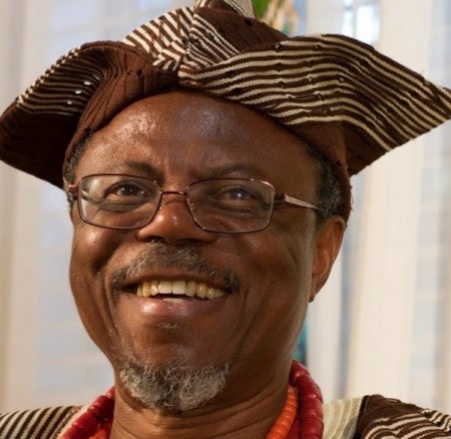

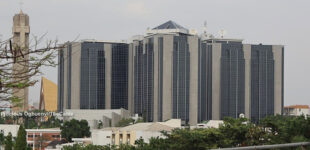
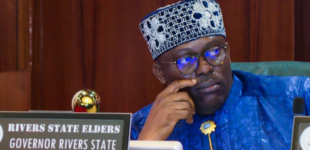
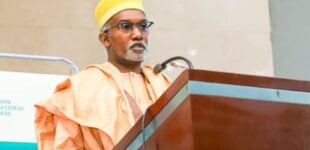
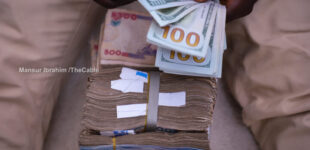
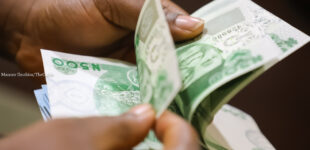



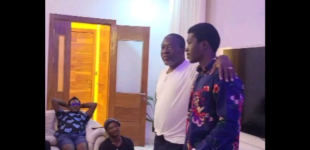

There are no comments at the moment, do you want to add one?
Write a comment